In today’s digital landscape, Search Engine Optimization (SEO) has become an indispensable tool for businesses seeking to enhance their online visibility and drive organic traffic to their websites. However, to truly harness the power of SEO, it is crucial to understand the pivotal role that data plays in optimizing and refining SEO strategies.
Data serves as the backbone of effective SEO, providing invaluable insights into website performance, user behavior, and search engine rankings. By leveraging data-driven approaches, businesses can make informed decisions that enable them to stay ahead of the competition and adapt to the ever-evolving search landscape.
From keyword research and backlink analysis to website analytics and structured data, the realm of SEO data is vast and multifaceted. By understanding the various types of SEO data and how to effectively collect, analyze, and apply this information, businesses can unlock the full potential of their SEO efforts and achieve sustainable growth in the digital marketplace.
The Role of Data in SEO
Data plays a pivotal role in the realm of Search Engine Optimization (SEO), serving as the foundation for informed decision-making and strategic planning. By leveraging data-driven insights, businesses can gain a comprehensive understanding of their website’s performance, user behavior, and search engine rankings—enabling them to optimize their SEO strategies for maximum impact.
One of the primary functions of data in SEO is to identify areas for improvement. Through meticulous analysis of website metrics, such as bounce rates, time on page, and conversion rates, businesses can pinpoint underperforming pages, technical issues, and content gaps that may be hindering their online visibility. Armed with this knowledge, SEO professionals can implement targeted optimizations to address these weaknesses and enhance the overall user experience.
Moreover, data serves as a powerful tool for understanding the competitive landscape. By examining competitor data, such as keyword rankings, backlink profiles, and content strategies, businesses can benchmark their performance against industry leaders and identify opportunities for differentiation. This competitive intelligence allows companies to stay ahead of the curve, adapt to emerging trends, and refine their SEO tactics to gain a strategic advantage in the search results.
Types of SEO Data
To effectively leverage data in SEO, it is essential to understand the various types of data available and their respective roles in optimizing website performance:
- Keyword data: Keyword data encompasses metrics such as search volume, competition level, and relevance. By analyzing keyword data, businesses can identify high-value search terms that align with their target audience’s intent and optimize their content accordingly. This data helps inform content creation, on-page optimization, and overall keyword targeting strategies.
- Backlink data: Backlinks, or inbound links from other websites, play a crucial role in determining a website’s authority and credibility in the eyes of search engines. Backlink data includes metrics such as the quantity and quality of referring domains, anchor text distribution, and link velocity. By monitoring and analyzing backlink data, businesses can assess their link profile’s health, identify opportunities for link acquisition, and mitigate the risk of potential penalties.
- Analytics data: Website analytics data provides invaluable insights into user behavior, traffic sources, and conversion rates. By leveraging tools like Google Analytics, businesses can track key performance indicators (KPIs) such as organic traffic, bounce rates, time on site, and goal completions. This data enables SEO professionals to understand how users interact with their website, identify high-performing content, and optimize the user journey to drive conversions.
By harnessing the power of these various data types, businesses can gain a holistic view of their SEO performance and make data-driven decisions to continuously improve their online presence. At Growth J, we specialize in helping our clients navigate the complex landscape of SEO data, providing tailored solutions that leverage cutting-edge AI technology to produce high-quality content and drive measurable results.
Benefits of Data-Driven SEO
Implementing a data-driven SEO strategy brings a multitude of benefits that significantly enhance a website’s search engine performance and user engagement. At the forefront is the ability to optimize search performance through actionable insights. By utilizing detailed analytics, businesses can refine their strategies to meet algorithmic preferences—resulting in enhanced visibility and increased organic reach.
Beyond rankings, data-driven SEO fosters a comprehensive understanding of audience behavior. This insight enables businesses to create content and marketing strategies that align with audience intent. Examining user interaction data, such as session duration, navigation paths, and exit points, allows companies to discern user preferences and adapt their offerings accordingly.
The identification of new keyword opportunities and content ideas is another critical benefit. Data analysis reveals content gaps and highlights emerging search trends, enabling businesses to craft innovative and relevant content that captivates their audience. This forward-thinking approach ensures that websites remain dynamic and continue to engage users effectively.
Competitive Advantage
A strategic advantage of data-driven SEO lies in its capacity to reveal insights into competitors’ strategies and market positioning. By delving into competitor analytics, businesses can understand industry standards and identify unique opportunities. This intelligence empowers companies to benchmark their efforts against peers and discover areas ripe for innovation.
Moreover, leveraging data allows businesses to maintain a proactive stance in a shifting digital landscape. As search algorithms evolve, data-driven insights equip companies to adjust their strategies with precision and foresight. Whether optimizing for voice search, incorporating structured data, or enhancing mobile compatibility, data-driven SEO ensures that businesses are well-positioned to lead in the digital domain.
In the fast-paced digital world, the ability to harness data for SEO is not merely advantageous—it’s essential. By consistently analyzing and integrating data insights, businesses can achieve sustainable growth, strengthen their online presence, and secure a formidable position in the market.
Implementing a Data-Driven SEO Strategy
A successful data-driven SEO strategy begins with establishing precise goals and performance targets. These objectives should be directly aligned with broader business aims, ensuring that SEO efforts contribute to overall success. Clear metrics, such as increased organic reach and improved user engagement, guide progress and enable strategic pivots when necessary. By setting these benchmarks, businesses can maintain focus on impactful outcomes.
The process of data collection and analysis is vital in this strategy. Employing sophisticated SEO platforms, such as Google Analytics and Google Search Console, allows for comprehensive data gathering. These tools provide a wealth of information on user interactions and site performance, essential for crafting informed strategies. Regular data assessment reveals critical patterns and opportunities, leading to actionable insights. Visual representations of data, such as infographics and dashboards, facilitate clear communication of findings to stakeholders, fostering a unified approach to SEO initiatives.
Enhancing content and website functionality is imperative for achieving optimal SEO performance. Utilizing keyword insights ensures that content aligns with user needs and search algorithms, thereby boosting relevance. Structural improvements based on data-driven insights enhance navigation and usability, fostering positive user experiences. Additionally, consistent monitoring of technical aspects, like page load times, ensures that the site remains efficient and accessible, contributing to sustained user satisfaction and search engine favorability.
The Future of Data-Driven SEO
In the ever-evolving world of digital marketing, artificial intelligence (AI) and machine learning (ML) are set to play transformative roles in the future of SEO. These technologies offer the capability to analyze vast datasets for deeper insights into user behavior, enabling businesses to tailor their strategies with precision. AI tools are adept at optimizing content dynamically, refining keyword approaches, and automating routine SEO tasks—allowing teams to focus on strategic growth and innovation.
With the increasing prevalence of voice search and advancements in natural language processing (NLP), businesses must rethink their approach to keyword optimization. Voice-activated devices encourage more conversational and context-sensitive queries, prompting a shift toward targeting long-tail keywords and natural language phrasing. Adapting to this change ensures that content remains accessible and relevant, meeting the evolving expectations of users for seamless and intuitive interactions.
Structured data continues to be essential in enhancing search engine comprehension and enabling the display of rich snippets. By implementing structured data, businesses provide search engines with clear content categorization, facilitating more informative and visually appealing search results. This strategy not only enriches user experience but also enhances click-through rates. As search engines favor user-centric features, effectively employing structured data will be crucial for maintaining visibility in a competitive landscape.
Staying Ahead of the Curve
To thrive in this rapidly changing environment, businesses must keep a close watch on industry trends and algorithm shifts. This approach allows for timely adjustments in SEO strategies to align with search engine priorities and market demands. Investing in cutting-edge SEO tools and technologies is vital for sustaining a competitive advantage, as these resources offer the analytical depth needed to interpret complex data and develop sophisticated strategies.
Cultivating a data-centric culture within an organization is paramount for making informed decisions. Encouraging an ethos of data utilization ensures that all team members contribute to a cohesive and dynamic SEO strategy. This cultural embrace of data empowers teams to drive innovation, resonate with target audiences, and reinforce their leadership in the market. By adopting these progressive strategies, businesses can confidently navigate the future of SEO with agility and foresight.
As the digital landscape continues to evolve, the importance of data in SEO strategies cannot be overstated. By harnessing the power of data-driven insights, businesses can optimize their online presence, enhance user engagement, and achieve sustainable growth in an increasingly competitive market. If you’re ready to unlock the full potential of your SEO efforts, we invite you to Contact Us at Growth J—together, we can leverage cutting-edge AI technology and data-driven strategies to help you stay ahead of the curve and dominate the search results.

